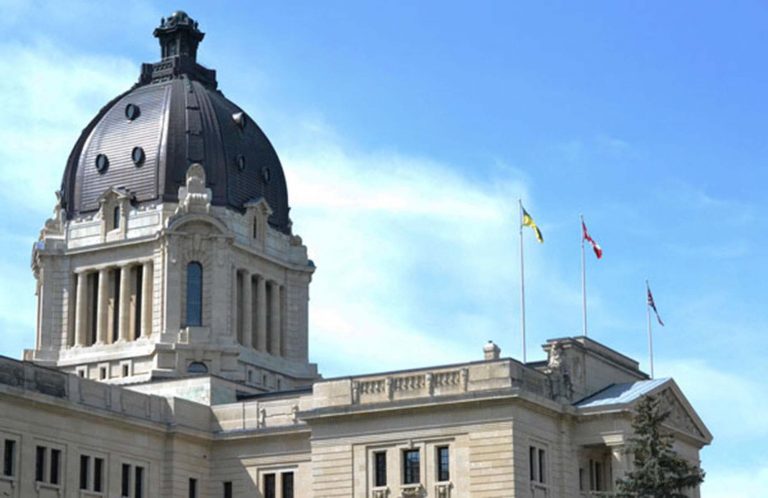
With the conclusion of the Fall sitting of the Legislature Wednesday, the Government of Saskatchewan touted the progress made on their Throne Speech priorities, but NDP leader Carla Beck says more needs to be done.
The Sask. Party’s key initiatives this fall included providing affordability relief, investments in health care recruitment and retention, new initiatives to make communities safer and introducing the Saskatchewan First Act.
The government used higher than expected natural resource revenue to fund a number of measures designed to tackle affordability challenges. Those plans include providing a $500 Affordability Tax Credit cheque for everyone 18 and above, retiring $1 billion in operating debt, extending the small business tax rate reduction and cancelling a previously announced PST expansion.
The province said those measures, along with low utility costs and income tax levels, have helped Sask. residents weather the challenges of inflation and interest rate hikes.
“A strong economy is what has allowed us to invest in affordability relief,” Deputy Premier and Minister of Finance Donna Harpauer said. “We will continue to stand up for and promote Saskatchewan, because a growing economy is what allows us to make key investments in healthcare, education and social services.”
Official Opposition Leader Beck called on Scott Moe and the Sask. Party government throughout the Fall session to investigate grocery prices, expand the $500 affordability cheques, and rolling back SaskPower and SaskEnergy increases to address the province’s nation-leading rates of economic anxiety and uncertainty.
Beck also said the provincial government failed to put forward a serious plan for healthcare, despite sitting on billions of dollars in windfall resource revenues and Provincial Auditor Tara Clemett finding that the government’s health plan is inadequate and would likely leave Saskatchewan over a thousand health workers short and with even more hospital closures.
As part of active recruitment efforts, a delegation recently traveled to Manila, Philippines, to recruit and promote Saskatchewan’s healthcare employment opportunities. To date, 161 job offers have been made to Filipino healthcare workers to join the province’s healthcare system.
“We know there are serious health care staffing challenges, but our plan is producing results,” Health Minister Paul Merriman said. “We received interest from more than 1,200 Filipino health care workers and we made 129 job offers while we were in Manila which will help to stabilize health services across the province and build a stronger healthcare workforce.”
While the province said they are seeing success on the Health Human Resources (HHR) action plan, Beck disagrees.
“Saskatchewan has so much potential, and the Sask. Party is holding us back,” said Beck. “Hospitals are closing, hard-working families are struggling to put food on the table, and instead of fixing these issues, the Sask. Party closed profitable liquor stores and poured taxpayer dollars into a redundant police force and a costly new tax system. Saskatchewan people can’t afford to keep paying for Scott Moe’s mistakes.”
Wednesday’s sitting also saw the introduction of the Saskatchewan First Act, which the province says will confirm exclusive jurisdiction over natural resources. As a result of the Act’s passing, an Economic Impact Assessment Tribunal will be created to define, quantify and report on the economic repercussions of federal initiatives on provincial investment and Saskatchewan projects, businesses, and people.
“A strong Saskatchewan means a strong Canada,” Minister of Justice and Attorney General Bronwyn Eyre said. “We are not going to be shy about asserting our economic autonomy and we are going to stand up and defend Saskatchewan against policies that hurt our economy.”
Premier Scott Moe thanked all members on both sides of the house for their support of the Fall session’s priorities, specifically the second reading of the First Act, the motion in defense of law-abiding firearms owners and the affordability tax credit cheque legislation.
